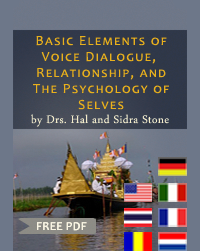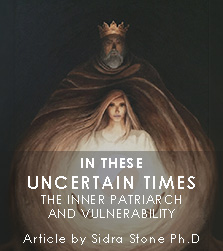A disowned self is being blocked from being used in life by the primary self or selves. The primary self judges these disowned selves as being bad or unsafe and so keeps them in a disowned or repressed state. An unconscious self is a self that we are not aware of simply because we are not at a stage in life where it comes into our sphere of existence. It is not repressed.
For example, if you were 30 years of age we would not expect you to be thinking about questions relating to death and dying. It isn’t the time. At the age of 70, however, if thoughts related to questions of death or dying were not present, we would assume that those thoughts are being disowned – held down by primary selves that don’t want you to think about death and dying. At 30 these ideas would not be age appropriate, they do not necessarily appear on your psychological horizon, while at 70 they would be age appropriate and their absence indicates some amount of repression or denial.






